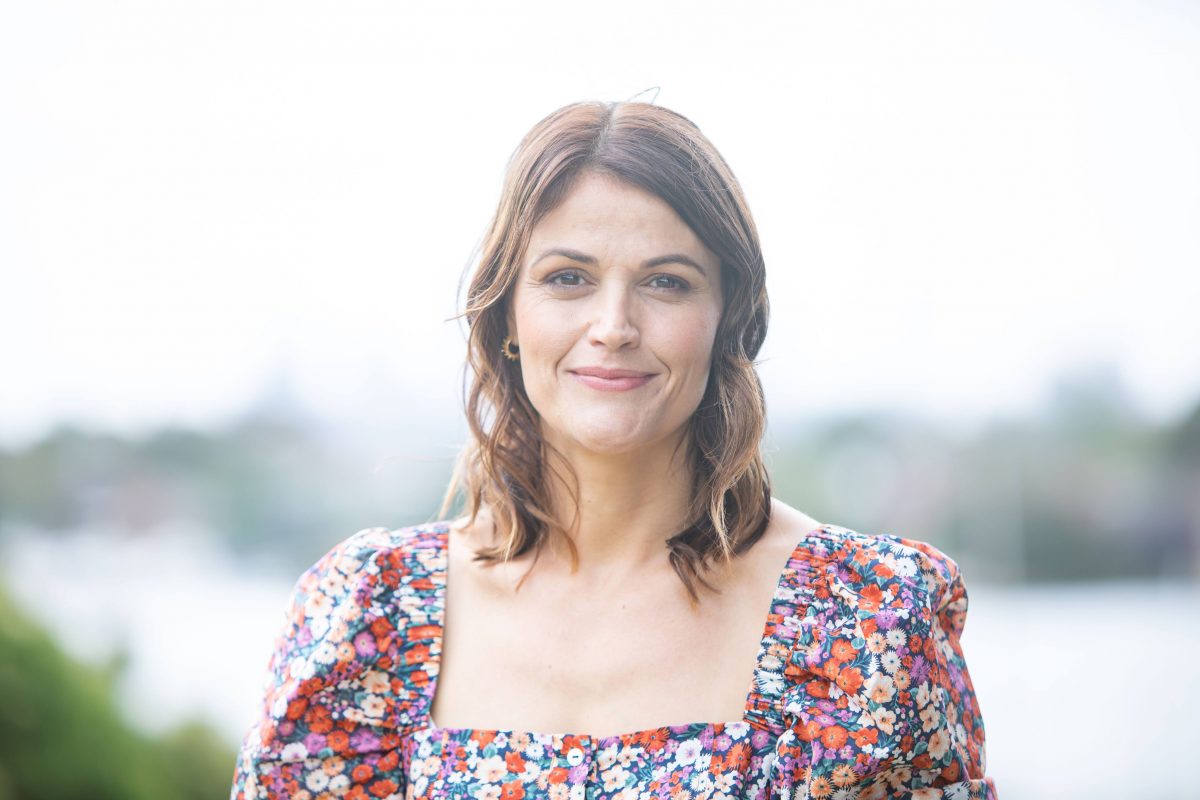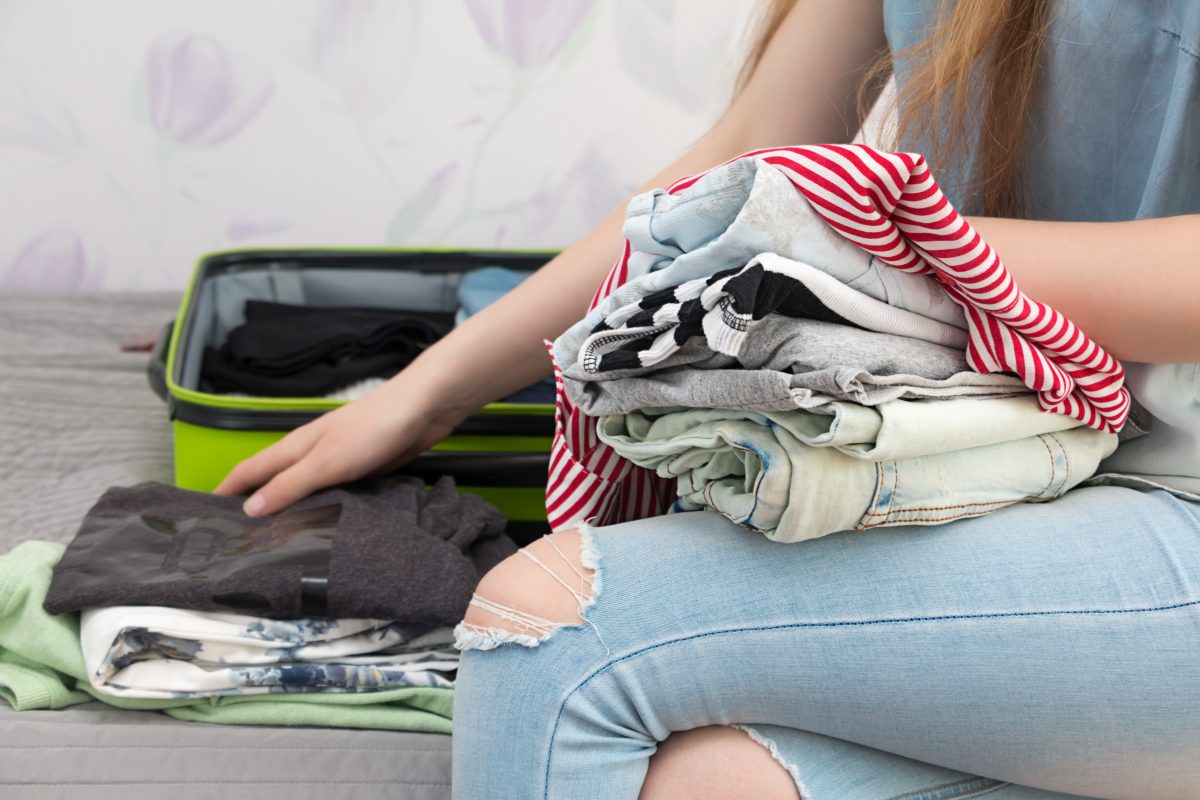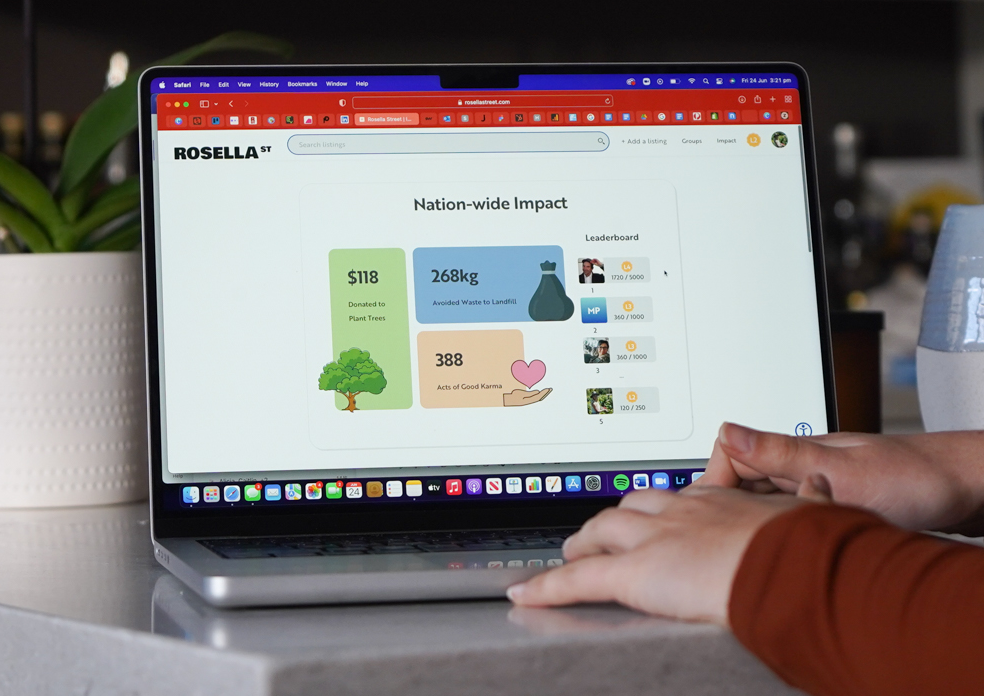
Jo Taranto of Good for the Hood. Photo: Good for the Hood.
The University of Sydney is using Canberra-based sustainable online marketplace Rosella Street as the mechanism in its latest waste reduction initiative.
Tapping into the expertise of Good for the Hood sustainability educators and the Rosella Street platform, the University of Sydney has launched its “Circular Economy Hub” to help its community manage assets and reduce waste.
Good for the Hood’s Jo Taranto said Rosella Street’s sustainability focus made it the ideal platform for the initiative, which promotes “usership” as an alternative to ownership.
“We want people to understand that they don’t need to own an item in order to use an item,” she said.
“That’s why the Rosella Street platform is so perfect for circular economy – because of its sustainability focus, unlike other online marketplaces it has as strong a focus on renting, borrowing and donating as it does on selling and buying, so users have multiple options for managing assets.

With an inherently transient population, universities create a perfect storm for waste. Image: Envato.
The concept of a circular economy centres on keeping resources at their highest value for the longest time.
“In other words, if you have a shirt, you keep it as a shirt for as long as possible,” Jo says.
“It’s about minimising waste as a byproduct of living and using regenerative systems that support life on earth without waste.
“It’s an economic system, a resource system and it’s linked with all aspects of modern living.”
In its first iteration Sydney University’s Circular Economy Hub will take the form of a group on Rosella Street in which university students and faculty members can find ways of sharing, swapping, borrowing, lending, trading, selling and donating.
Though it would be great to have a physical hub where behaviours supporting circular economy practices could play out, Jo reckons universities have ideal conditions for a thriving circular economy even online.
“Universities are perfect for this because they’re already a community in themselves,” she says.
“Within them, you have micro communities, faculties, clubs, societies, colleges, staff, students, contractors, retailers – it’s a little system within itself and within that, there are a lot of challenges that circular economies can help resolve.
“It’s a fairly transient population coming and going each semester, not to mention a mass exodus each year. When people need to vacate properties, labs, colleges and so on, we have all this stuff they need to get rid of quickly, so it’s a perfect storm for creating waste.
“But you also have people who don’t have high amounts of disposable income, so they’re open to alternative means of getting affordable, free and accessible items.
“This hub gives them a pre-established community they know they can lean into to support a circular economy.”

Rosella Street’s Impact Tracker will allow members to monitor the effect their activity on USyd’s Circular Economy Hub has on their carbon footprint. Photo: Rosella Street.
Sydney University’s Circular Economy Hub is powered by a City of Sydney grant awarded to Rosella Street.
It supports the university’s Sustainability Strategy 2020, which outlines an ambitious goal to send zero waste to landfill by 2030.
“I’d like to see really well attended and subscribed community swapping, sharing, loaning, lending and trading items,” Jo says.
“No doubt we will start to see a shift in landfill from that but for the first year of the program, it’s about getting a connected and thriving community off the ground.”
While members will be able to track their impact on Rosella Street’s impact tracker, the primary goal will be to spur behaviour change.
The hope is the project will “create a playbook” for other universities across the country to roll out their own initiatives.
The Circular Economy Hub’s first in-person event – the USyd End of Semester Swap Event – will be held Monday 21 November at R.D. Watt Lecture Hall.
“We’ll also be at Welcome Week next year,” Jo says.
“People can learn more about the hub, sign up and maybe find the items they need to get off the ground in the new year at uni.”
The University of Sydney students and faculty can click here to join the Circular Economy Hub on Rosella Street or register for the USyd End of Semester Swap Event here.












